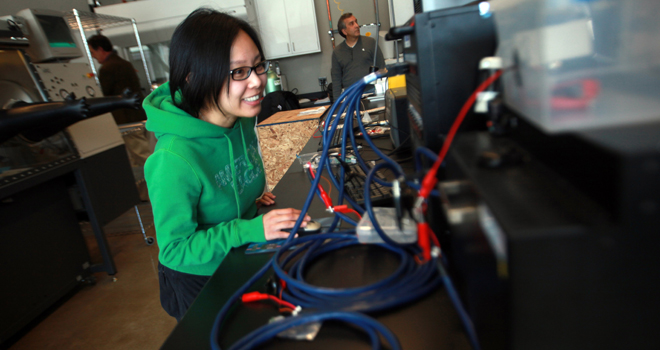A new book about batteries and electric cars shows us that promising emerging battery technologies are developing at far too slow of a pace to make any difference, argues Slate‘s technology columnist Farhad Manjoo.
The fundamental problem with batteries is the existence of gasoline. Oil is cheap, abundant, and relatively easy to transport. Most importantly, it has a high “energy density”–meaning that it’s phenomenally good at storing energy for its weight. Today’s best lithium-ion batteries can hold about 200 watt-hours per kilogram–a measure of energy density–and they might theoretically be able to store about 400 watt-hours per kilogram. Gasoline has a density equivalent of around 13,000 watt-hours per kilogram.
In addition, the amount of power that’s required to speed up the process of re-charging electric cars makes it unlikely that we’ll see charging stations emerge like regular gas stations, he notes.
There are some promising technologies like the lithium-air battery, but research on it has been going on for decades and yet significant hurdles still remain.
For example, a company called PolyPlus has made some progress, but has yet to figure out how to properly recharge its version of the lithium-air battery, Manjoo says.
The book is Popular Science Senior Editor Seth Fletcher’s “Bottled Lightning: Superbatteries, Electric Cars, and the New Lithium Economy.”









